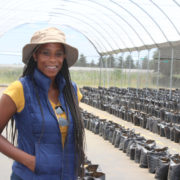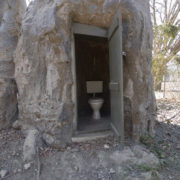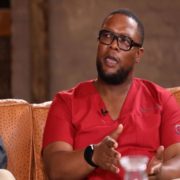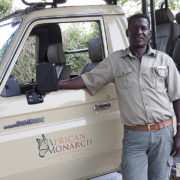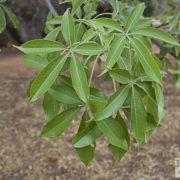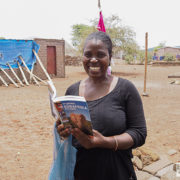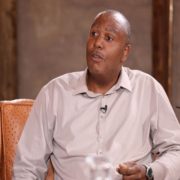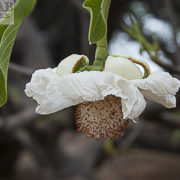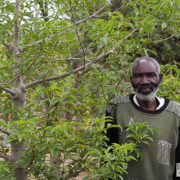The shy, technology-loving fresh-produce grower – African Farming
TELL US A LITTLE ABOUT YOUR FARMING OPERATION
I am the founder and CEO of The Green Terrace in the Bapsfontein area of Gauteng. I grow fresh produce, including spinach, peppers and cabbages, using hydroponics systems in greenhouses. I use drip irrigation and automated fertigation to water and feed my crops. My harvests are currently marketed to retailers, wholesalers and processors.
HOW DO STAY INFORMED ABOUT DEVELOPMENTS IN THE AGRICULTURAL SECTOR?
As an entrepreneur, self-employed individual, CEO, farmer – anybody in agriculture and agribusiness – I think it’s important for us to know what’s happening in and around our sector, and how our sector is impacted by macro-and micro-economic factors. I keep abreast of these developments by reading agricultural news and publications, anything to do with the economy and where South Africa stands compared with the rest of the world.
What I really enjoy is speaking to my clients and input suppliers, because they have a wealth of information. Input suppliers engage with many different farmers and can provide a general sense of what life is like on the ground. Similarly, clients can tell you whether their business is having a good or a bad year and give you the reasons why. This can impact my business directly.
WHO DO YOU CALL FIRST WHEN YOU NEED ADVICE ON A PROBLEM ON YOUR FARM?
It depends on what specific problems I’m facing. If it’s anything to do with my crops I’ll call my technical sales representative, who is also an agronomist. If it’s anything to do with other aspects of my business, I have the numbers of other farmers on speed dial. They are farmers within my network. I will tell them what the problems are and, trust me, they will give me an answer before the end of the day.
I also speak to other business people who are not in agriculture but who can help me with problems, like when I’m struggling with clients or cash flow. They have knowledge and experience of dealing with these particular aspects.
WHAT IS YOUR VIEW ON ENSURING THAT YOUR EMPLOYEES ARE PROPERLY TRAINED?
I currently employ five full-time workers, with the possibility of going to about 10 fulltime workers before the end of the year. I believe it’s important to train employees because this is how you minimise any problems, especially at production level – including human error and other mistakes, and any work that’s not done.
Employees need to know what they’re doing so that they are fully equipped for their work and responsibilities, to ensure they can complete the work they’re tasked with. I also believe training brings dignity, empowerment and a sense of value to individuals. If you feel you’re adequately trained and competent to perform a specific task, your confidence rises and you can happily share this knowledge with others. Training also shows an employee that they are valued. Even informal things like group training on Covid-19 protocols are important. It’s how you get a better workforce.
AS A FARMER, WHAT DO PEOPLE MOST COMMONLY ASK YOU AND WHAT IS YOUR REPLY?
The question I’m most commonly asked is ”Where do I find land?”. My advice is to drive around farming communities where there are lots of farms for sale nowadays, to check websites like Property24, or to search online for “farm for sale” or “farm for lease”. People can also ask farmers whether they know of farms for sale or lease.
IF YOU HAD NOT TAKEN UP FARMING, WHERE DO YOU THINK YOU WOULD BE NOW?
I have no idea. I can’t even guess. I honestly don’t see myself doing anything else. I’m a first-generation farmer; I didn’t grow up in a family of farmers. I’m an entrepreneur and am thankful that I’m farming, even though it has some extreme challenges. I’m actually addicted to challenges and risks, and I enjoy being forced to think out of the box sometimes. Farming has done exactly that for me, and so much more.
THE WORST MISTAKE YOU’VE MADE IN YOUR FARMING CAREER SO FAR?
This is a tricky one. Perhaps the worst mistake I’ve made in farming so far was expecting my business model on paper to have followed in reality. I’ve since discovered via my journey over the past five years that this is not the case. There are just too many variables in farming. The financial setbacks because of these variables between plans and reality can be quite devastating, especially if you’ve been working really hard. Farming is quite risky and perhaps that’s why it’s difficult to find investors for the sector.
IS THERE ANYTHING YOU BELIEVE HAS REVOLUTIONISED YOUR AGRIBUSINESS?
A major thing that revolutionised my business was going into high-tech hydroponic farming. We read about sustainability and how important it is to grow a farm – not necessarily in size of the land but rather in yields on existing area, because this is how we generate revenue.
My having invested in a farm that is now fully greenhoused and automated, and uses the hydroponics system, has been revolutionary.
The location of my farm also gives me a competitive advantage because I’m surrounded by many imports and exports companies, and by food processing companies that are manufacturing for major retailers, both locally and in other countries. These companies are prepared to pay a premium price for my products.
There’s no better feeling than when they come to my farm and see the beautiful commercial production that I’m running. My business is definitely at a higher level than it was before.
YOUR TOP FIVE FARMING TOOLS?
■■ My Ridder system – it’s a completely automated fertigation system that I can monitor and control on my phone even when I’m not on the farm. It’s been a phenomenal tool and definitely worth the investment. It’s cut down my production inputs by almost 50%.
■■ Agrigistics farm-management software, which gives me real-time reports on my agricultural production.
■■ The Tillo app that I use for record-keeping. It’s free, and I can’t do without it as a backup for my farm’s production data.
■■ My laptop, without which I absolutely cannot survive.
■■ My greenhouse tunnels, because there’s no better way to farm than under their protection.
WHAT WAS IT LIKE WHEN AN ARTICLE ABOUT YOU APPEARED IN AFRICAN FARMING?
It was nice to have an in-depth conversation with Peter Mashala, and to learn about African Farming. It was great that my story generated publicity to showcase the hard work I’ve done, that it could possibly help and inspire others.
To be honest, though, I didn’t read my article because I make a point of not reading or watching anything about myself in the media. This is not a reflection of these platforms but simply because I am very shy and extremely reserved, and I hate looking at or reading about myself. It makes me feel awkward.
I trust that journalists or other people who come to my farm will put something good out there. I depend on other people’s feedback about what they thought of anything that is written or shown about me and my farm.
However, I am grateful to have been featured in African Farming, especially as a woman African farmer. Kudos to African Farming for being out there and sharing and profiling a lot of farmers’ stories. Keep up the good work.
WHAT ADVICE WOULD YOU OFFER OTHER FARMERS WHO LOOK UP TO YOU?
They should persevere. You should also have a good team of people around you that will have your back when you are succeeding as well as when you are failing, when you are at your lowest. These people around you are literally your lifeline. Farming is extremely tough – it’s mentally, physically and financially challenging, and it’s emotionally draining as well. Not many people can put up with this.
It requires a lot of patience, a lot of thinking out of the box, a lot of research, a lot of conversations with people that are better educated and more knowledgeable and experienced than you. Be resilient and aim to be in the agricultural sector long-term. If it’s not for you, quit while you’re ahead. It’s okay to quit because not everybody can be a farmer. At the end of the day, it is the farmers who take all the risks.
HOW DO YOU LIKE TO RELAX AFTER A BUSY DAY ON THE FARM?
I go to gym and I swim. I’m a good swimmer and I enjoy doing laps in the pool. Exercise helps me to de-stress. I meditate as often as I can. Lately I am deliberately trying to take weekends off to chill and watch series and documentaries – I’m a huge fan of those. I’ve also been spending time with my family and extended family.

